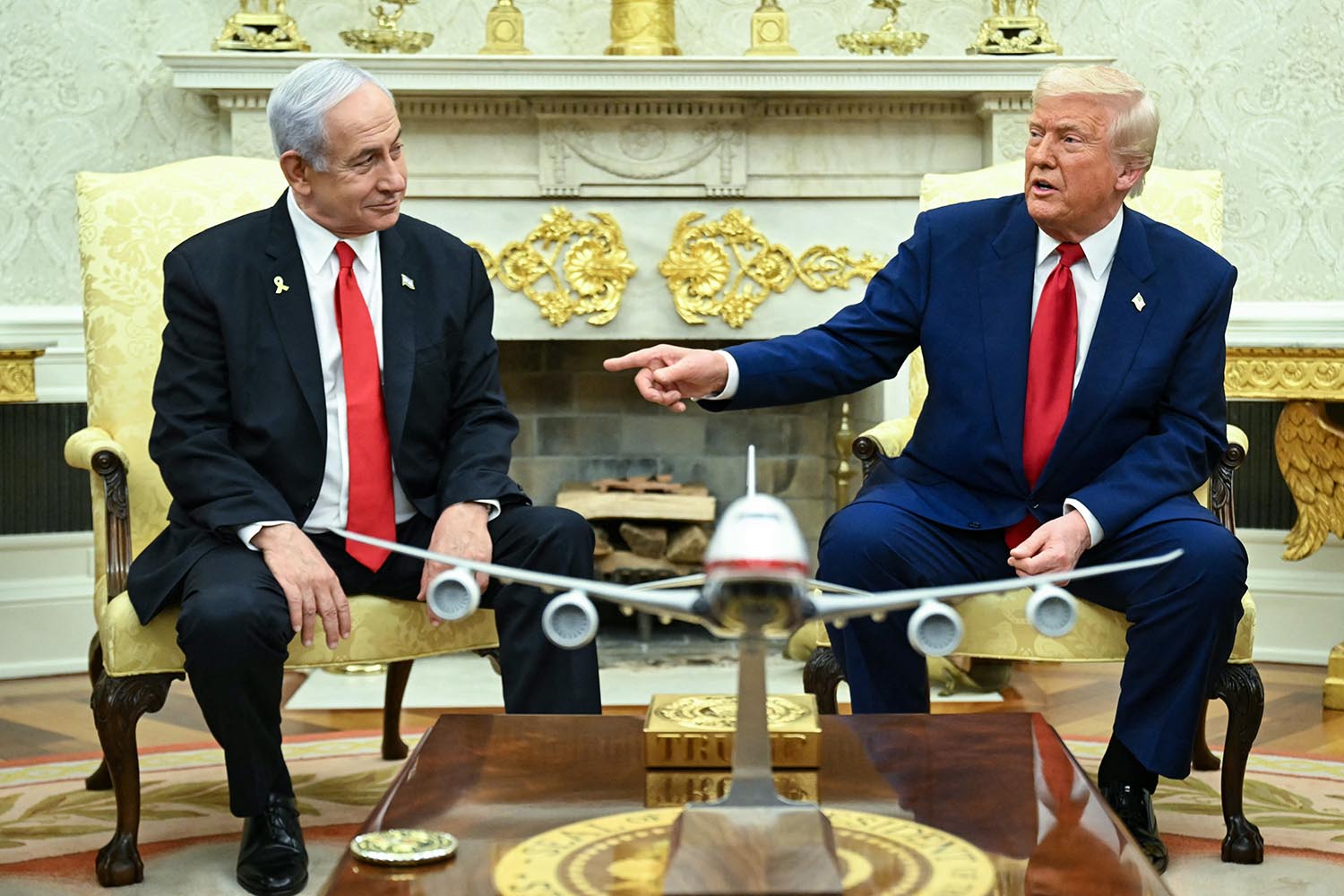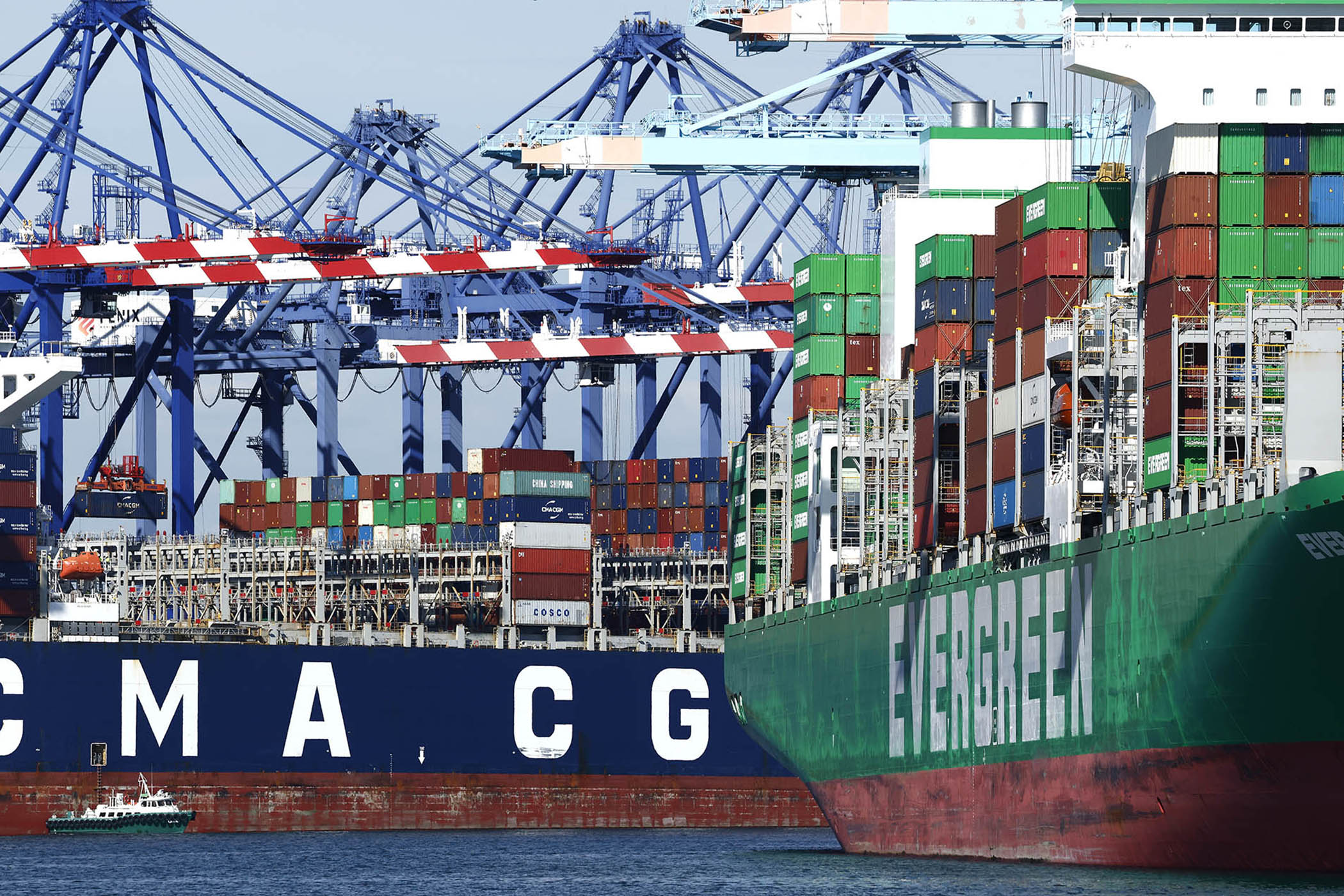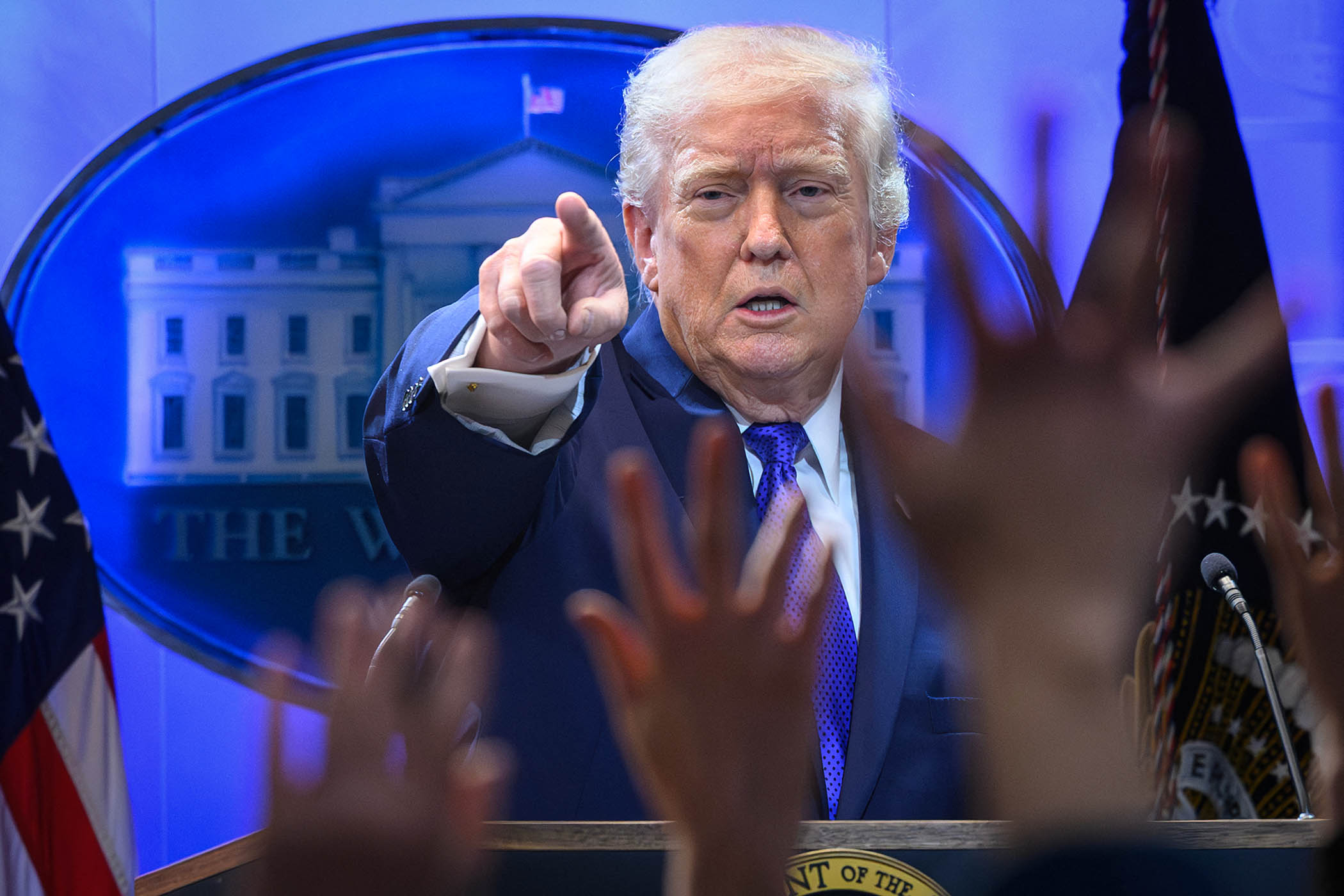Earlier this summer in the Oval Office, Donald Trump boasted: “We just ended a war that was going on for 30 years.” Not for the first time the US president was confused about the past and catastrophically wrong about the future.
Roughly two weeks after Trump’s announcement of a “peace deal” between the Democratic Republic of the Congo (DRC) and Rwanda, fighters from the Rwanda-backed M23 rebel group “summarily executed” more than 140 people in eastern DRC, according to a new report by Human Rights Watch (HRW). It was, said HRW, one of M23’s “worst atrocities”.
Before his recent red carpet summit with Russian president and international criminal court indictee Vladimir Putin, Trump claimed he has “solved six wars in six months”.
It’s not true by any stretch of the imagination, but the exaggeration – wrapped in a brazen and desperate attempt to win the Nobel peace prize – tells us something, not just about the psyche of the president, but of the role of the US under Trump’s second coming.
First, though, those wars – starting with two where no one was actually fighting.
Trump has claimed that: “Serbia, Kosovo was going to go at it, going to be a big war.” In his telling, he warned both countries that there would be no trade with the US. “They said, well, maybe we won’t go at it.” This all came as something of a surprise to people in the region, who weren’t aware they were on the brink of a “big war”.
Trump also claimed to have brought peace to Ethiopia and Egypt, solving a dispute over Ethiopia’s mega dam. This is a row, albeit a serious one, but not a war – and there has been no deal.
Trump believes he orchestrated the ceasefire that ended the conflict in May between India and Pakistan over Kashmir, but India swiftly said he had nothing to do with it.
Likewise, he has claimed credit for temporarily ending the border dispute between Thailand and Cambodia last month after threatening them with higher tariffs. There is a modicum of truth to this, but the dispute is in no way over.
Finally, the US president is taking credit for ending the war between Israel and Iran, though given the US was also a participant in that conflict, and no one knows yet what the consequences will be of his decision to bomb Iran’s uranium enrichment plant in Fordow, it’s perhaps generous to portray him as a peacemaker here.
Newsletters
Choose the newsletters you want to receive
View more
For information about how The Observer protects your data, read our Privacy Policy
Trump wants a Nobel peace prize, even going so far as to just happen to mention it during a phone call with the Norwegian finance minister, Jens Stoltenberg, about the level of tariffs he was thinking of imposing on Norway, which just so happens to award the prize.
He’s also aware that it’s unlikely to happen. In a recent social media post, Trump used the phrase “I won’t get the Nobel Peace Prize for…” five times.
Diplomacy is hard. I reported from Havana in 2013 on Norway and Cuba’s efforts to persuade Colombia's government and Farc guerrillas to agree to a peace deal that would end a 50-year conflict.
For years, the participants had lived in a series of houses around a lake, meeting every morning in an effort to inch the process forward. It was slow, boring and completely away from the public eye.
This is the exact opposite of Trump’s approach. He wants to put on the show of treaty-signing without bothering with the long grind of diplomatic negotiation. He is not, it’s fair to say, a details man – he knows nothing of the causes of the conflict between the DRC and Rwanda, only that he wants it to end and for him to get the credit.
But while it’s easy to mock (see above), the fact the US president wants to use his power to end conflicts is a good thing. The UK, either on its own or as part of an E3 alliance with France and Germany, simply does not have the power or influence to force two warring parties to lay down their weapons. The US does.
We’ve witnessed this most clearly under Trump in the one conflict he doesn’t want to talk about: Israel’s destruction of Gaza.
The closest we’ve come to an end to the war was the result of Trump using the power of the presidency – and he hadn’t even taken office.
In early January, he sent his envoy Steve Witkoff to Jerusalem to persuade Benjamin Netanyahu to finally agree to a ceasefire. Witkoff turned up on the Sabbath and summoned a reluctant Netanyahu to see him. Months of foot-dragging came to a sudden halt and a deal was signed.
Were Trump to show the same determination again – perhaps even threatening to end military aid – Netanyahu may be forced to compromise. It is depressing that Gaza’s best hope is a man who clearly doesn’t care for the lives of Palestinians. But that doesn’t mean it’s not true.
If Trump really does want to add the small piece of gold awarded with the Nobel peace prize to his White House collection, trying to end Israel’s war in Gaza would be a far better use of his power.
Photograph by Saul Loeb/Getty



